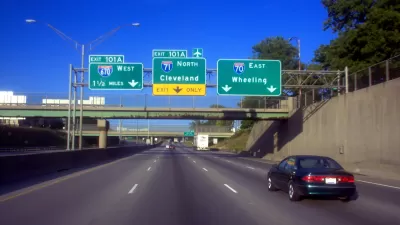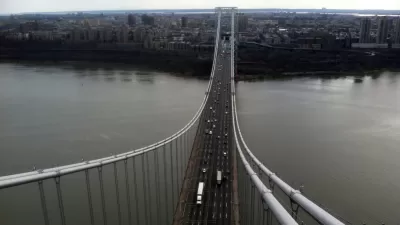The stimulus package is jump-starting smart grid projects, says Jay Birnbaum, Senior Vice President of CURRENT Group.
Chuck Conconi is the host of online video series Focus Washington. He interviewed Birnbaum last week.
"Chuck Conconi: I'm going to ask you to be a little bit technical at this particular point. Summarize the key provisions for the Department of energy's proposed outlines for this.
Jay Birnbaum: Well the stimulus package actually broke down the Smart Grid funding into two separate groups. One group, one category if you will, has $615 million set aside for smart grid demonstration projects. The department have defined these as projects that are new, that are sort of novel technologies or novel applications of existing technologies. And then there is a second category, which is much larger and which is almost $3.4 billion. That money is for commercial deployment of Smart Grid technologies, much like what we are already doing in Boulder and in other locations. Now the utilities would go and deploy previously deployed or previously existing commercial technology.
Chuck Conconi: Any problems you've noticed in the DOE proposed plans for this?
Jay Birnbaum: No problems necessarily. Again I think they did a very good job in trying to incorporate a lot of different utility visions of how to do Smart Grid. Their proposed criteria give utilities a lot of flexibility in types of projects they can propose. One constraint is time. You have to have the money spent within two years or you can't use it any longer. And another issue is benefits. The department is looking for projects that will create a large number of benefits, such as environmental benefits, job creation, reducing electricity costs, integrating renewable energy resources, and what is called distributive energy resources, likes the solar panels on your roof. So they are trying to incorporate a large number of different applications and that's what the utility companies have to design their plans to fit within."
FULL STORY: CURRENT Group's Jay Birnbaum, Smart Grid Stimulus Plan

Planetizen Federal Action Tracker
A weekly monitor of how Trump’s orders and actions are impacting planners and planning in America.

Maui's Vacation Rental Debate Turns Ugly
Verbal attacks, misinformation campaigns and fistfights plague a high-stakes debate to convert thousands of vacation rentals into long-term housing.

San Francisco Suspends Traffic Calming Amidst Record Deaths
Citing “a challenging fiscal landscape,” the city will cease the program on the heels of 42 traffic deaths, including 24 pedestrians.

Defunct Pittsburgh Power Plant to Become Residential Tower
A decommissioned steam heat plant will be redeveloped into almost 100 affordable housing units.

Trump Prompts Restructuring of Transportation Research Board in “Unprecedented Overreach”
The TRB has eliminated more than half of its committees including those focused on climate, equity, and cities.

Amtrak Rolls Out New Orleans to Alabama “Mardi Gras” Train
The new service will operate morning and evening departures between Mobile and New Orleans.
Urban Design for Planners 1: Software Tools
This six-course series explores essential urban design concepts using open source software and equips planners with the tools they need to participate fully in the urban design process.
Planning for Universal Design
Learn the tools for implementing Universal Design in planning regulations.
Heyer Gruel & Associates PA
JM Goldson LLC
Custer County Colorado
City of Camden Redevelopment Agency
City of Astoria
Transportation Research & Education Center (TREC) at Portland State University
Jefferson Parish Government
Camden Redevelopment Agency
City of Claremont





























